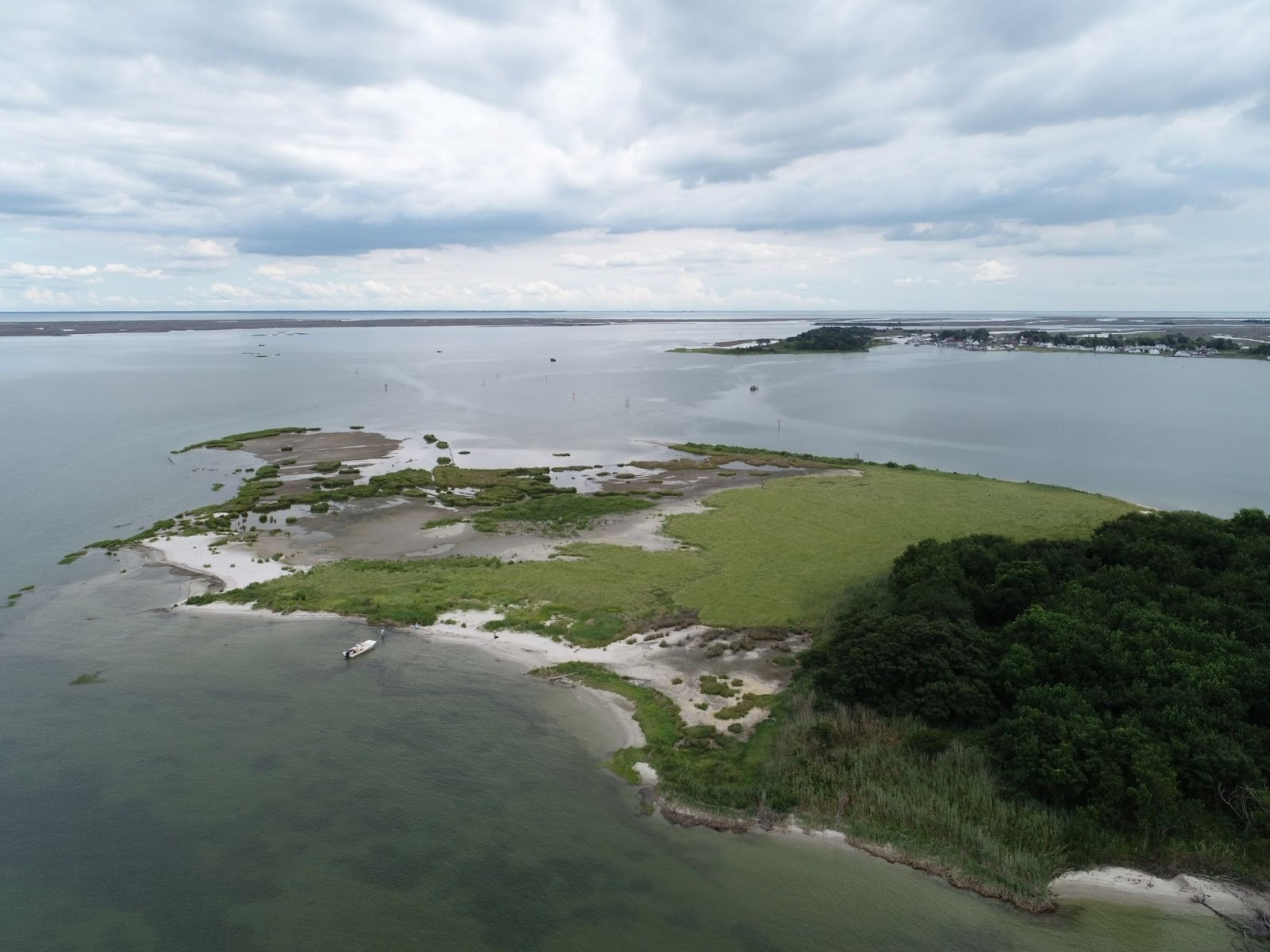
Natural infrastructure, including reefs, marshes, and islands, can attenuate waves and reduce flood risks to coastal communities while providing recreation opportunities and habitat that benefit people and wildlife. Despite these advantages, widespread adoption of natural restoration approaches is hindered by uncertainties in performance and benefits. Long-term monitoring to evaluate a project’s evolution and response over time is required to overcome obstacles to implementation.
A report published by the US Army Corps of Engineers Engineering With Nature® (EWN®) Program, in collaboration with NCCOS, US Fish and Wildlife Service, Maryland Department of Natural Resources, USACE Baltimore District, and USACE Engineer Research and Development Center, addresses these knowledge gaps by documenting the post-restoration monitoring and evaluation approach for a restored island in Chesapeake Bay.
Swan Island, a 25-acre island within Martin National Wildlife Refuge, functions as a natural wave break for the town of Ewell on nearby Smith Island. In the last half century increased rates of relative sea level rise, erosion, and subsidence have taken their toll on Swan Island, with parts of the island experiencing erosion rates of nearly 10 feet per year. To address island loss, the Baltimore District used 60,000 cubic yards of dredged sediment from a nearby navigation channel and 200,000 marsh plants to restore the Island in 2019.
The Swan Island Monitoring and Adaptive Management Plan documents the restoration approach, project objectives, monitoring parameters, conceptual model development, and performance criteria for adaptive management. This information is critical to informing the adaptive management of the island and is transferable to other nature-based infrastructure projects, regions, ecosystems, and scales.
NCCOS supports research that fosters acceptance of nature-based solutions that achieve multiple economic, environmental, and social benefits.
